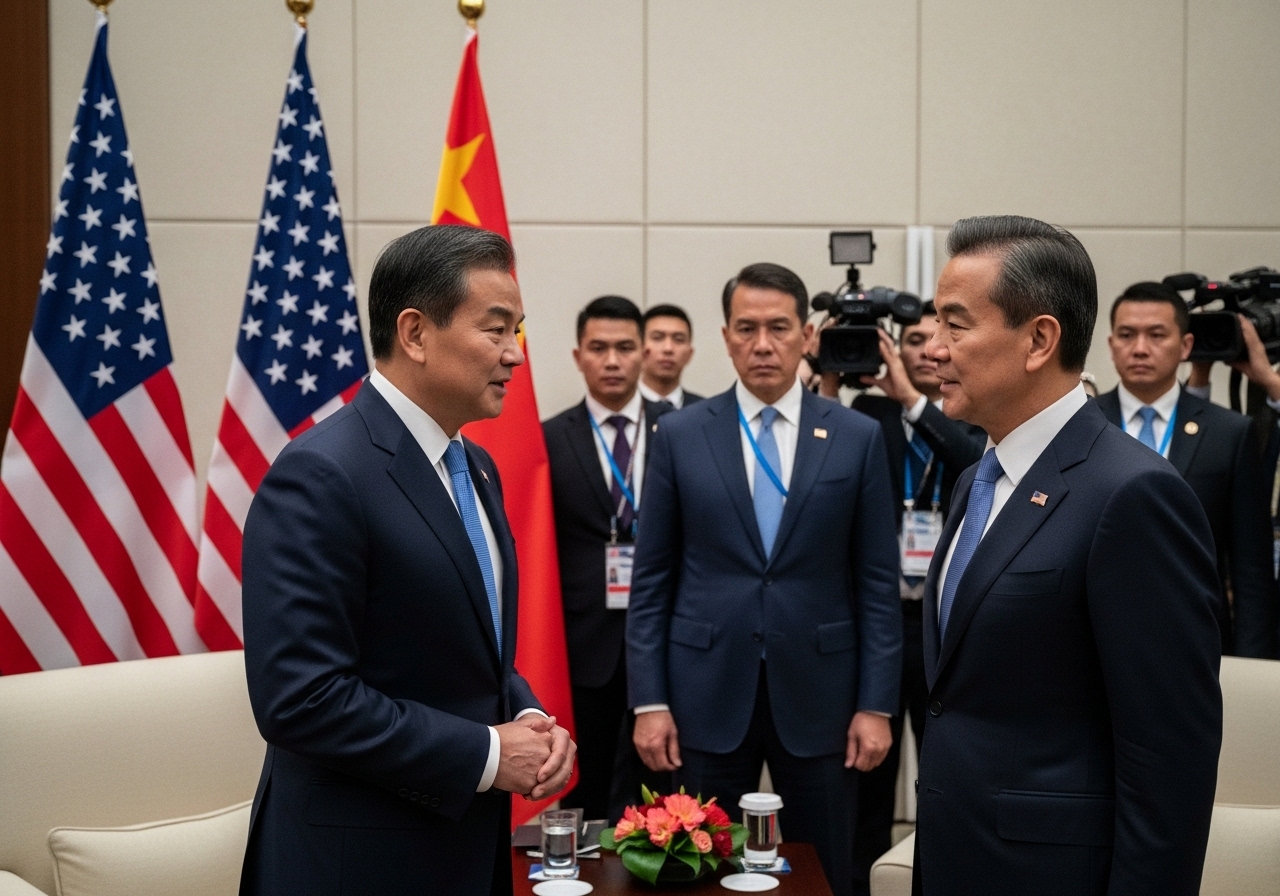In a pivotal development, Secretary of State Marco Rubio is signaling a potential breakthrough in the increasingly tense U.S.–China relationship. After months of diplomatic strain, Rubio’s first face-to-face meeting with China’s Foreign Minister Wang Yi at the ASEAN Regional Forum in Malaysia has sparked cautious optimism, setting the stage for a possible summit between President Donald Trump and Chinese leader Xi Jinping.
Rubio characterized his exchange with Wang Yi as “very constructive” and “positive,” a significant shift in tone amid ongoing frictions ranging from trade disputes to geopolitical posturing. This diplomatic thaw, while preliminary, could mark a turning point in a relationship critical to global stability. Rubio’s pragmatic approach underscores a willingness to engage meaningfully without sacrificing American strength or values.
Yet, Rubio remains clear-eyed about the challenges ahead. U.S.–China relations have been strained by China’s predatory trade practices, intellectual property theft, and the alarming flow of illicit fentanyl precursors that have devastated American communities. President Trump has rightly leveraged tariffs to confront these abuses head-on, refusing to allow American workers and businesses to be victimized. Rubio’s diplomacy reinforces Trump’s determination to secure tangible, verifiable results before any high-level presidential meeting occurs.
Beyond economics, the geopolitical chessboard is increasingly complex. Rubio highlighted China’s troubling alignment with authoritarian regimes, notably its subtle but undeniable support for Vladimir Putin’s Russia. Beijing’s willingness to bolster Russia’s wartime economy through record-setting bilateral trade poses a direct challenge to American interests and global stability. Rubio’s simultaneous meeting with Russian Foreign Minister Sergei Lavrov further demonstrates the administration’s resolve to address these complex dynamics head-on, refusing to cede an inch to adversaries seeking to undermine U.S. influence.
Aside from economic concerns, the U.S. has been frustrated with China’s support for authoritarian regimes like those in Iran and Russia. Rubio highlighted China’s subtle support for Russia, noting that Europe and the world have noticed this alignment.
The Trump administration’s strategic clarity is precisely what’s needed in these uncertain times. While the Biden years reflected weakness and appeasement, Trump’s America stands firm, demanding accountability and reciprocity from China. Rubio’s diplomatic engagement, grounded in realism rather than wishful thinking, sends a clear message: America seeks constructive dialogue, but not at the expense of national security or economic sovereignty.
Both Washington and Beijing acknowledge the importance of maintaining open diplomatic channels. China’s Foreign Ministry described the Rubio–Wang meeting as “positive, pragmatic, and constructive,” demonstrating mutual interest in reducing tensions. The U.S. State Department echoed this sentiment, emphasizing continued dialogue as critical to addressing regional and global concerns, from the fentanyl crisis to China’s strategic partnerships with hostile actors.
However, Rubio is cautious not to oversell the significance of a single diplomatic encounter. While expressing optimism about a Trump–Xi meeting, Rubio insists that the conditions must be right, emphasizing “the need for a conducive atmosphere and meaningful deliverables.” Platitudes and photo-ops are insufficient—President Trump rightly demands substance, concrete commitments, and measurable progress that protect American jobs, security, and values.
As Rubio navigates this diplomatic tightrope, conservatives should remain vigilant. China remains a formidable competitor intent on undermining American leadership globally. While diplomacy is valuable, it cannot substitute for strength, resolve, or clarity of purpose. Trump’s tough stance on China has already yielded dividends, forcing the CCP to the negotiating table. Rubio’s constructive yet uncompromising approach builds upon this foundation, ensuring that any high-level summit advances American interests first.
In short, the odds for a Trump–Xi meeting may indeed be high, but conservatives understand clearly that such a meeting must serve America’s strategic goals. Rubio’s diplomatic outreach is commendable, but vigilance remains essential. The Trump administration’s commitment to a strong, prosperous, and secure America must guide every step, ensuring that diplomatic engagement strengthens—not weakens—our hand in confronting China’s global ambitions.





